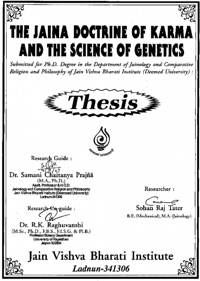When traces (saṁskara) of afflictions get accumulated in the mind they produce desired karma. There is no action possible without passion of love and pleasure (rajoguṇa). When the passion of love and pleasure associates with virtues (satoguṇa) there arises the tendency of knowledge, righteousness, renunciation and spiritual grace. When passion of love and pleasure associates with malignant qualities (tamoguṇa) there arises the tendency towards contrary acts like ignorance, lack of righteousness, attachment and lack of gracefulness. These two types of karma are called auspicious-inauspicious, sin-virtue or lustrous-dark.
The consequences of such actions that are routed in five afflictions are to be faced in both the births, present and future. [44] These are in two forms:
- afflictive (malignant dominant)
- non-afflictive (virtue dominant).
The great sages and yogīs who have uprooted afflictions through desireless, non-attachment practices reduced their karmas to mere duties do not have to face their consequences. Desired karmas arises only when the traces (saṁskaras) of afflictions are rooted in the subtle mind. According to Yoga darśana these karmas result into birth, life, pleasure, pain etc., since both virtuous as well as sinful actions bring their results.[45]
 Prof. Dr. Sohan Raj Tater
Prof. Dr. Sohan Raj Tater
 Doctoral Thesis, JVBU
Doctoral Thesis, JVBU